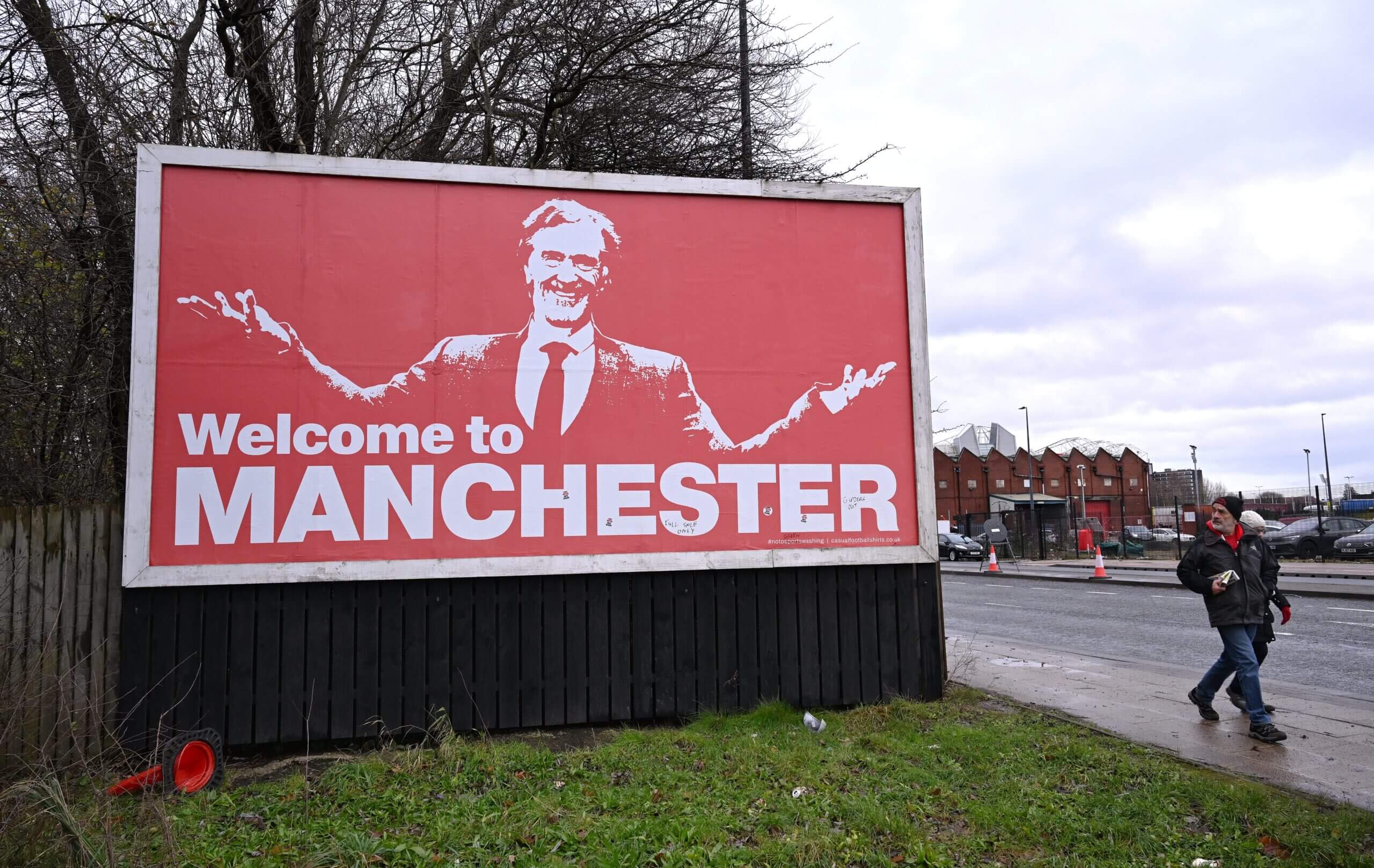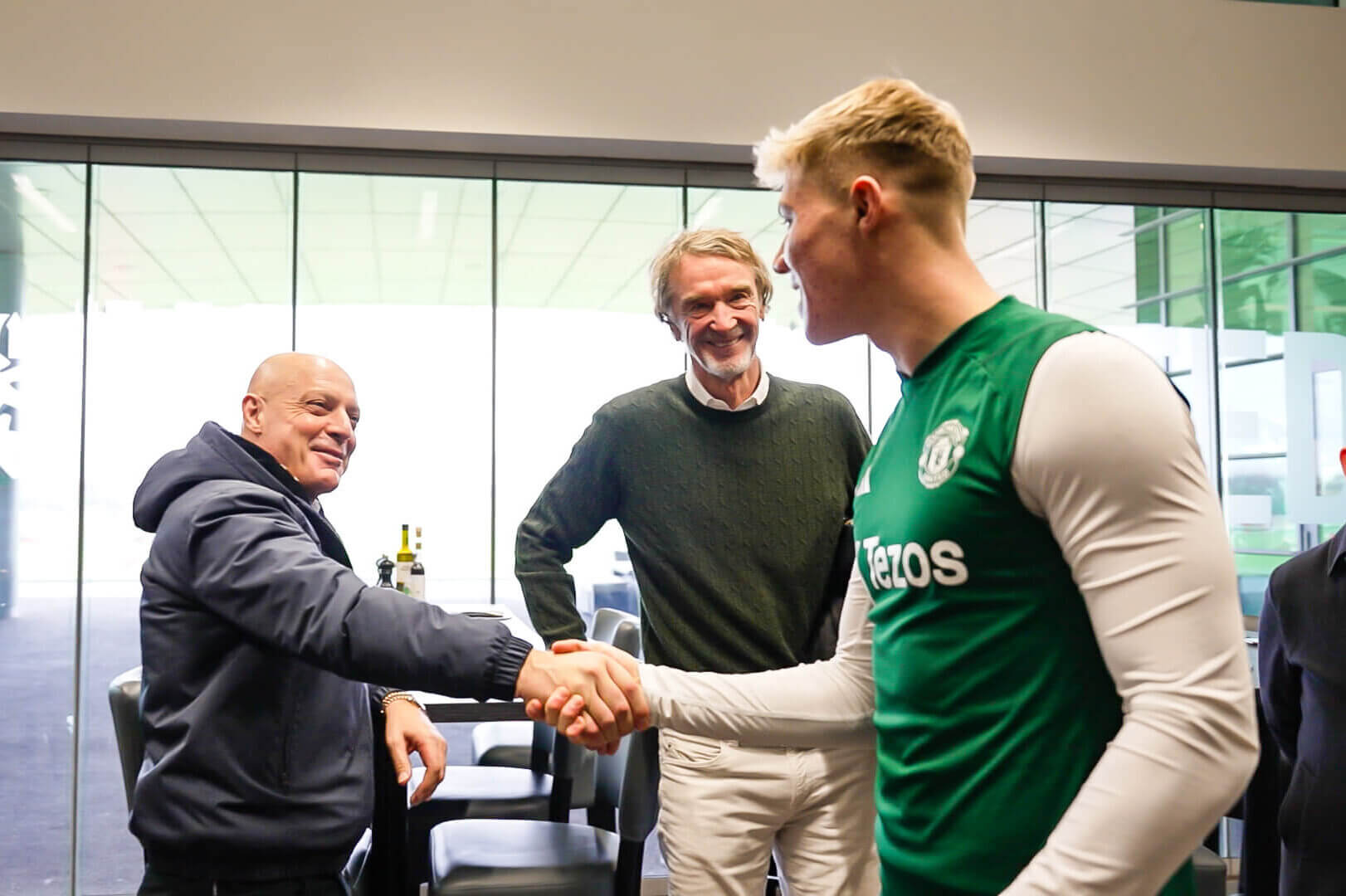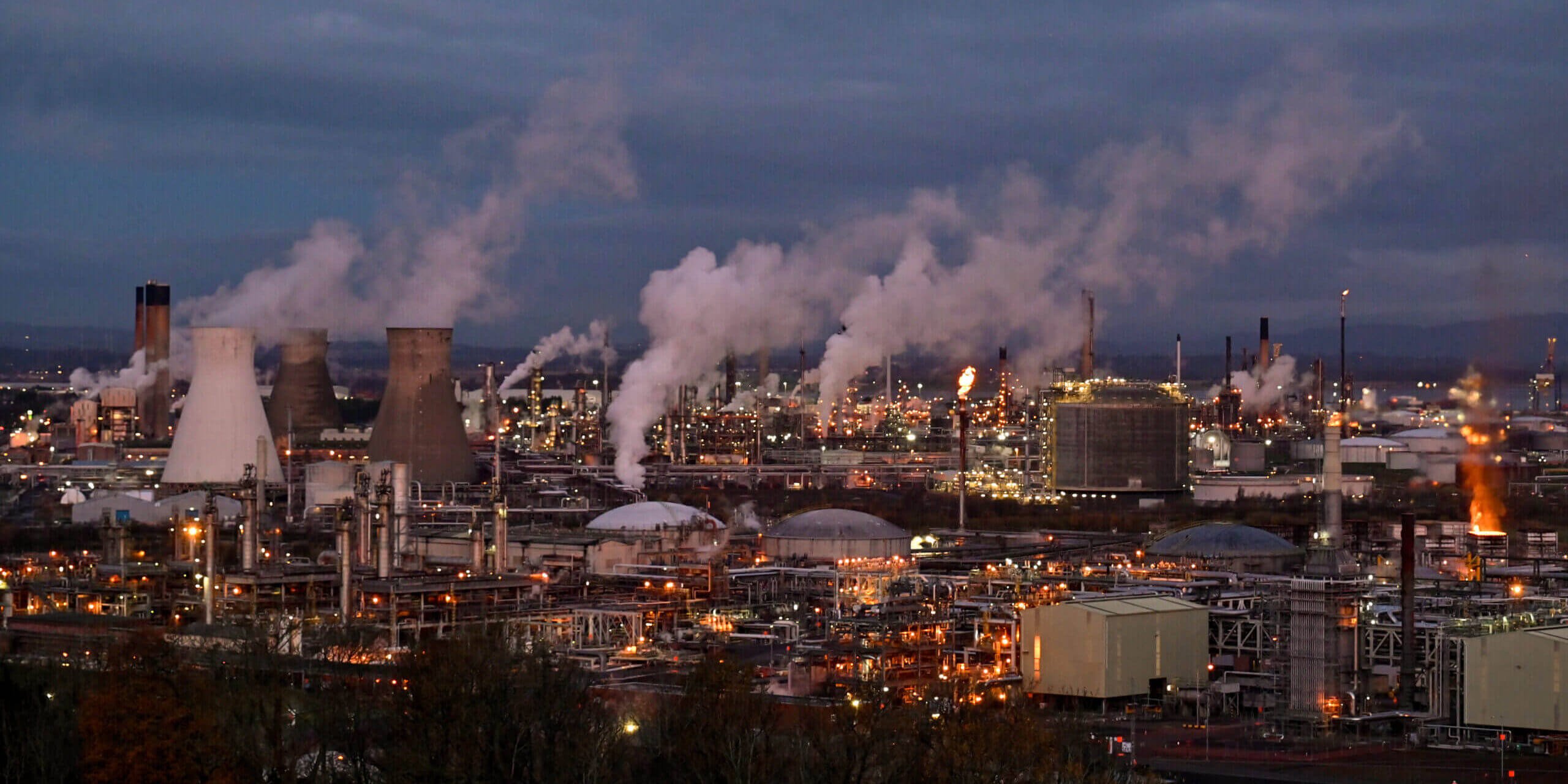Sir Alex Ferguson began his working life in the Glasgow shipyards.
In 1961, as a 19-year-old, he led his colleagues in an apprentices’ strike. Two years later, he became shop steward of the toolroom — a union representative elected by his peers to lead them in negotiations with senior management. His politics, like everything else in his life, were red (left-wing to any non-English readers out there).
“It was my trade union background that helped give me the ability to make decisions and to be able to present myself,” he told Manchester United’s TV channel in 2015.
Fifty years later, and 30 miles up the road, another knight of the realm, Sir Jim Ratcliffe, was testing the power of those same Scottish unions.
Ratcliffe, one of Britain’s most high-profile Brexit advocates, has taken over sporting control at Manchester United after agreeing to buy a 25 per cent stake in the club for £1.3billion ($1.6bn).
That money — he is the UK’s second-richest man, according to the Sunday Times Rich List — comes from INEOS, a conglomerate founded by Ratcliffe that includes the fourth-largest chemical business in the world. Its interests are manifold but as well as plastics manufacturing and sporting investment, it also includes joint ownership of Grangemouth, which houses Scotland’s only oil refinery.

Ratcliffe visits Grangemouth in 2016 (Andy Buchanan/AFP via Getty Images)
After bitter negotiations, union officials at the refinery had developed a nickname for its owner: ‘Dr No’. Back in 2013, these reached a new level of acrimony — ending, in an inversion of typical labour disputes, in Ratcliffe announcing his intention to shut the entire plant down if workers did not accept his “survival plan”.
“We were looking at a major industrial catastrophe in Scotland,” said then-First Minister Alex Salmond. The unions were spooked — and signed Ratcliffe’s deal.
Ten years later, those jobs are at risk again. In November 2023, owner Petroineos (the company is a joint venture between INEOS and Chinese firm PetroChina) announced its plans to close the oil refinery, replacing it with a fuels import terminal at a cost of 400 jobs.
The reason cited? A lack of money amid market pressures. One month later, on Christmas Eve, Ratcliffe’s £1.3bn investment in Manchester United was announced. The timing brought anger on the Firth of Forth, with many of Grangemouth’s residents entering Christmas while fearing for their long-term working future.
Ratcliffe’s tenure at Grangemouth provides clues over how he will manage his new, shiniest asset.
There will be investment… but also risks and a touch of ruthlessness.
In central London, just half a mile away from Buckingham Palace’s back gates, is The Grenadier pub. The former officers’ mess is owned by Ratcliffe and is painted ostentatiously in red, white and blue. During the takeover process, INEOS made much of being a British bid.
Inside, watched on by bearskin-clad cavalry officers, diners can order meals featuring guinea fowl, aubergine caviar, and £7 bowls of chips. In its Belgravia neighbourhood, the average house price is £3.3million ($4.1m).
Appropriately, The Grenadier’s ceilings are papered with banknotes.
Grangemouth is different. Halfway between Edinburgh and Glasgow, Scotland’s two largest cities, any vista of the town includes INEOS’ facilities, smoke, towers, and 4,000km of pipework. It underscores how the threat of deindustrialisation literally looms over the town.
An estimated 13,000 jobs are directly or indirectly linked to the wider complex, fully owned by INEOS, which also hosts a petrochemical plant.
Even with this employment, parts of Grangemouth are struggling. Bowhouse, a residential area in the middle of town, is among the five per cent most deprived wards in the country, according to the 2020 Scottish Index of Multiple Deprivation. Three others — the town centre, Kersiebank East, and Kersiebank West — are in the bottom 10 per cent.
“Growing up in Grangemouth, the main thing is how close you are to the petrochemical refinery,” Gillian Mackay, the Scottish Greens MSP for Central Scotland, tells The Athletic. “It meant that every time there was flaring, you knew about it.

Workers from Grangemouth leave a staff meeting during the 2013 disputes (Jeff J Mitchell/Getty Images)
“I remember being a young kid, the noise outside, and what felt like almost a bright orange light being switched on and off outside my bedroom. You can see it from as far away as Edinburgh, and at some points, it is never dark. As a kid, we never really learned to ride our bikes on the road because there were so many tankers and big HGVs around.”
Ratcliffe was covered in mud and surrounded by deer when he first struck a deal to take over Grangemouth — agreeing to a $9billion deal to buy BP’s petrochemicals business while midway through a mountain biking holiday in Scotland’s Glen Nevis. Tripling the size of INEOS overnight, Ratcliffe’s plan was relatively simple: wash off the dirt to make the business profitable.
Grangemouth, as one of Scotland’s flagship industrial sites, was central to this. The facility is responsible for four per cent of the country’s GDP and approximately eight per cent of its manufacturing base. Ratcliffe, from a venture-capitalist background, wanted to streamline its processes, arguing this was the only way to make it profitable and secure its long-term future. He brought cuts to both the workforce and their associated benefits — something he is immediately planning as part of the ongoing strategic review at Manchester United.
His actions were closely watched — and challenged — by Unite, which is one of the two largest unions in the United Kingdom and represents the Grangemouth workers.
It won an early victory in 2008, striking over final-salary pension schemes, which cost INEOS, by its own estimate, £120million. Ratcliffe was deeply frustrated, arguing afterwards that this loss prevented further investment in the plant.
Another source of anger, albeit for a self-avowed workaholic, was that his daughter Julia had been born at 3am in London on the first day of the strike. Foreshadowing what can be expected at Manchester United, he flew to Scotland straight after the birth to show solidarity with refinery management.
More on United’s future under INEOS…
This, in addition to mounting losses of up to £10million each month, was the backdrop to events in 2013. Both sides were spoiling for a fight. Ratcliffe, from his end, did not just want to stop making concessions to Unite: he wanted to make gains of his own to move the site towards profitability. The situation erupted after a union leader called Stevie Deans, who was a senior shop steward at Grangemouth, was suspended by Petroineos over allegations he was conducting associated Labour Party business on company time.
Unite accused Ratcliffe of wanting to “break” the union by attempting to “attack and target” Deans — with the workforce voting to withdraw their labour in response to Deans’ treatment. INEOS, meanwhile, argued that, with the company already “uncompetitive” and following a “summer of discontent” over Deans’ position, “either Grangemouth must accept change or closure”.
Ratcliffe also voiced his anger at a phone call he received from Unite leader Len McCluskey: “For the head of Unite to ring up and threaten to shut us down because we treated his union the way we’d treat any other employee — and he’s not a sacrosanct individual who is not to be touched, and who can do whatever he wants — is just outrageous.”
Unite’s attitude in the strike has since been questioned, with other branches of the union accepting that mistakes were made. Ratcliffe’s hackles were further raised by protests outside the homes of board members.
In response, the magnate vowed to senior staff that he would not back down — and so when Grangemouth’s workforce uniformly rejected a “survival plan” he had suggested, which brought with it sizable cuts, that promise was tested.

Protesters block an entrance to Grangemouth (Jeff J Mitchell/Getty Images)
Ratcliffe decided to shut down Grangemouth and call the union’s bluff. Putting 800 jobs at risk, refinery bosses said they could not guarantee redundancy pay, or even a job by Christmas, just two months later. Scottish first minister Salmond urged INEOS to “fire up the plant and do it now”.
Ratcliffe was playing poker — and Unite folded. They accepted Ratcliffe’s survival plan, conceding on every point. Much of the workforce felt conflicted; they had retained a job that had been threatened, but on much worse terms than before.
Now, Ratcliffe has turned his attention from Unite to United. What can be learned? Take negotiations. During the shutdown, he was accused of “holding our country to ransom” by the refinery’s local Labour MP.
“We must listen, we must be unwaveringly polite and retain our charm,” Ratcliffe has said before, discussing the UK’s Brexit negotiations with the European Union. “But there is no room for weakness or crumpling at 3am when the going gets tough and most points are won or lost.”
For a man walking into a club with a reputation for being soft in negotiations, this sort of ruthlessness may be welcomed.
Another key facet of the dispute was Ratcliffe’s use of the media — proactively seeking to shape the story. Rather than use its own internal communications, INEOS hired a PR firm, MediaZoo, to handle media relations during the crisis. Manchester United’s media department is already known as one of the more involved examples in the Premier League — do not expect this to change.
In the months afterwards, INEOS also produced its own 26-minute documentary — The Battle for Grangemouth — in which refinery executives were elevated to TV stars, cast as the heroes in saving Scotland’s industrial capacity. During the documentary, they discuss the importance of managing the media, including deliberately leaving doors ajar so they could listen in on conversations and announcements they believed showed themselves in a good light.
“Absolute delight,” are the closing lines of the documentary, spoken by INEOS executive Declan Sealy, one of the chief negotiators. “We had given Grangemouth a future.”
Ten years later, that statement is out of date. Last November, Petroineos announced the closure of the oil refinery business by 2025 due to “significant challenges because of global market pressures”. The facility would be converted into an import terminal and have just 100 jobs — a loss of 400 jobs directly, with far more expected indirectly. Two hundred jobs had already been lost in November 2020 due to the Covid-19 pandemic.
“It’s going to waste, Grangemouth,” one resident told BBC News last November. “It’s bad enough now — look at the town centre, there’s nobody here.”
There is nuance to this. There is an acceptance among the majority of political parties in the region that the oil refinery would always have to close at some point as part of a transition to greener sources of fuel. Combined, the company’s oil, chemical and power plants at Grangemouth produced more than 3.2million tonnes of carbon dioxide in 2019, making the company the largest source of emissions in the country.

Ratcliffe’s focus is now on Manchester United (Stu Forster/Getty Images)
Some, however, think this is happening too quickly, motivated by Petroineos’s desire to avoid further losses, without offering workers the chance to gain transferable skills.
“It should be a workers’ transition, a just transition,” says Mackay. “We need that move to cleaner, greener industry that’s going to be on that site for the next 100 years, but which also gives certainties about transferring those skills over to the workforce. We want to see a more long-term plan — a closure within 18 months is premature, and it doesn’t allow any time for consultation with the workers or community. There’s no plan for what comes next.”
In response, speaking in front of Scottish MSPs, Petroineos head of legal Iain Hardie insisted that workers would be offered financial incentives to stay until 2025, and said they were “absolutely at the heart of our strategy”.
“There’s an inevitability about us having to migrate from a fossil fuel-based economy to a non-fossil fuel economy,” he added.
Though Petroineos insists that workers are a priority, it has not stopped criticism of the manner in which many found out that their jobs were at risk. Trade union representatives were only included in a board to discuss Grangemouth’s industrial future after Scottish newspaper The Sunday National revealed that they had previously been excluded.
“I grew up less than 200 yards from the plant and I can tell you right now that workers at the plant are bewildered, betrayed and furious at finding out about this from a story on the internet long after shareholders were made aware,” says Mackay.
“I really hope that, at some point, Sir Jim Ratcliffe and the bosses come down to Grangemouth and speak to the workers, speak to the community, and tell everybody what their plan is.”
Ratcliffe has not visited Grangemouth since the refinery’s closure was announced in November — the same month he was embroiled in the finer details of his £1.3bn takeover of Manchester United.
“When you look at the money that he’s going to be spending on a leisure item, as much as I love football, there’s bigger societal impacts out there,” says Brian Leishman, Scottish Labour Party’s candidate for Grangemouth’s constituency.
“The fuel security of the UK is definitely one, but also the wider Scottish and UK economy, and what it’s going to do to local people. It’s easy to label people as statistics, but these are people who have mortgages, who have children at school, who are working to try and improve their lot in life. They’re going to take the hit for this.”
The timing of the Manchester United takeover has angered many across the region, who feel that Ratcliffe’s concerns, as well as his money, have been focused elsewhere while their livelihoods are at stake.
In response to these concerns, as well as the process by which Grangemouth workers were informed of the risk to their livelihood, INEOS did not comment.
Writing in the Guardian last November, the journalist Aaron Timms addressed the myth of the spotless billionaire.
“A victory, at last, for clean money, good money, English money,” he wrote, satirically. Of course, the rival Qatari bid for Manchester United, led by Sheikh Jassim, carried its own wealth of ethical objections.
The myth of the immaculate billionaire is an important lens. With the sums of money involved in modern football, it is near-impossible for any potential buyer of the world’s largest clubs to own a blemish-free record. Ratcliffe is displacing some of the Glazer family’s control, whose popularity speaks for itself.
Ratcliffe’s record at Grangemouth brings reasons for Manchester United supporters to be encouraged. He is a genuine childhood fan, who reacts strongly to being bullied, negotiates firmly — some may say brutally, even — and knows how to control a narrative.

Ratcliffe and Brailsford meet Hojlund (Manchester United/Manchester United via Getty Images)
While he is aware of public opinion, his record shows he is not guided by it: he will make an unpopular decision and then fight to justify it.
There is a flip side. At Grangemouth, Ratcliffe walked into a loss-making operation. It will be the same at Manchester United. Back then, his attempted streamlining brought him into direct conflict with workers.
If he had more accountability at Grangemouth than his BP predecessors, then the attention (from both fans and media) will be even higher in football. His ownership of the oil refinery ended in vitriol — and with failure.
When the Glazers bought Manchester United, they protected their investment, cut costs, and stood firm despite the criticism. That process does not sound unfamiliar.
(Top photo: Jeff J Mitchell/Getty Images)


